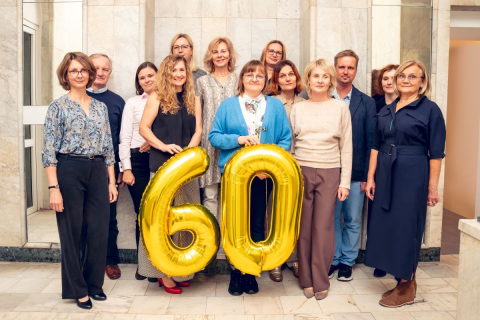The department was established on October 1, 1965. Initially, teaching and research focused mainly on clinical psychology. Subsequently, these areas were gradually expanded to include somatic psychology, doctor-patient relationships and communication, and then health psychology. This development is reflected in the changes in the name of the unit in the following order: Department of Clinical Psychology, Department of Medical Psychology, Department of Psychology and Medical Communication, and finally the Study of Health Psychology (since 2021).
They teach students how to help patients and themselves
The classes taught by lecturers from the Study of Health Psychology are held at all faculties of our university and in most fields of study. These are various subjects. They cover topics ranging from general psychology, through clinical and medical psychology, medical communication, and health psychology, to topics specific to individual fields of study, such as psychodietetics, psycho-oncology, and psychology in obstetrics.
Interestingly, the Study of Health Psychology also offers training in specific psychosocial skills, such as learning and memory techniques, assertiveness, as part of optional classes. Recently, it has introduced “Happiness Training” and continues to expand its educational offer.
They cooperate with Norwegians and others
The Study of Health Psychology conducts research on the psychology of somatic patients, aging issues, patient-medical staff relations, interpersonal and medical communication, and professional burnout. Their largest project, both in terms of scope and financial value, is PRACTA (nearly PLN 3 million from Norway Grants funds). Title: The promotion of senior activation in public healthcare: diagnosis of patients' psychosocial needs and strengthening of doctors' interpersonal skills. It was carried out in 2013-2017 in Polish-Norwegian cooperation. It included two surveys of primary healthcare physicians and their patients in three voivodeships of Poland.
In turn, in 2014-2015, the SUPP project was implemented with Norwegian funds as part of the “Development of Polish Universities” program. It focused on creating a comprehensive program to facilitate the early integration of foreign students into the local and academic community. At that time, the idea of creating a Common Room (in the ZIAM building) emerged – a room for foreign students to work and relax together.
The current international cooperation project is ERUDITE - Empathy in Medical Education and Healthcare. Between 2024 and 2027, a Polish-German-Cypriot-Romanian cooperation will develop an Empathy Handbook, an online platform, a modern empathy teaching program, and a set of recommendations for decision-makers.
They provide psychological assistance to students, patients, and medical professionals
With the participation of the Study of Health Psychology employees, two new units have been established: since 2014, the University Counselling Services of the Medical University of Warsaw, whose purpose is to provide psychological assistance to Polish and foreign students of our university (English-language website of the counseling center), and since 2023, the Department of Clinical Health Psychology of the University Clinical Center of the Medical University of Warsaw, whose aim is to provide psychological assistance to patients and employees of the Central Clinical Hospital of the Medical University of Warsaw and the Infant Jesus Clinical Hospital of the Medical University of Warsaw (website of the Department of Clinical Health Psychology).
The Study of Health Psychology is a university-wide unit and is currently part of the Center for Humanities and Social Sciences in Medicine, which reports to the Vice Rector for Student Affairs and Education. The team consists of 13 research and teaching staff and one administrative employee. The head of the study program is Dorota Włodarczyk, MD, PhD.
